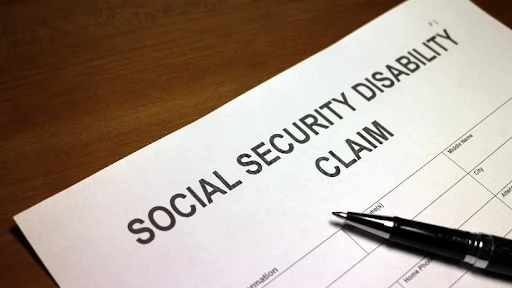
Join us as we explore the essential aspects of Social Security Disability, ensuring you are equipped with the knowledge to make informed decisions about your future.
Overview of Social Security Disability
Social Security Disability (SSD) is a federal program designed to aid those who cannot work due to a medically determinable physical or mental disability.
Administered by the Social Security Administration (SSA), SSD provides financial support to eligible individuals who have a disability expected to last at least one year or result in death.
The program is rooted in the principle of providing a safety net for those whose disabilities significantly impact their ability to earn a living.
Qualifying for SSD involves a thorough evaluation of medical evidence, work history, and an assessment of how disability affects day-to-day activities.
Understanding the scope and function of SSD is crucial for anyone considering an application, ensuring they are well informed about the potential benefits and requirements of the program.
Should I Apply for Social Security Disability?
Determining whether to apply for Social Security Disability (SSD) is a significant decision that impacts your life and well-being. As noted above, your long-term disability insurer will likely require it, unless you have an individual policy.
SSD, a federal program administered by the Social Security Administration (SSA), is designed to provide financial assistance to individuals who are unable to work due to a severe and long-term disability.
This comprehensive guide aims to clarify when and how to apply for SSD, ensuring you have the information needed to make an informed decision.
How To Know If You Have a Disability?
Identifying a qualifying disability is a crucial first step in the SSD application process. The SSA’s definition of disability is specific: your condition must substantially limit your ability to perform basic work activities and is expected to last at least one year or result in death. If your LTD claim has been approved for six months to a year, you may qualify, which is why the LTD insurer requires it so they can reduce their payments to you.
This definition encompasses a wide range of disabilities, including both physical and mental impairments.
For instance, chronic illnesses such as heart disease, severe back conditions, autoimmune disorders, as well as mental health conditions like severe depression or bipolar disorder may qualify.
The key to establishing your disability lies in comprehensive medical documentation. This includes detailed medical records, statements from treating physicians, and evidence of how your condition affects your daily life and ability to work.
It’s not just about having a diagnosis; it’s about demonstrating the extent of its impact on your functionality.
Who Can Apply for Social Security Disability?
Eligibility for SSD is twofold: it depends on your disability and your work history. You must have a sufficient work history in jobs covered by Social Security. Typically, this requires 40 credits, half of which should be from the last 10 years.
However, younger workers may qualify with fewer credits. This requirement ensures that SSD benefits are available to those who have contributed to the Social Security system through their work.
Additionally, your disability must be severe enough to prevent you from performing any substantial gainful activity (SGA). This definition of disability is like the definition of disability found in many LTD plans after two years. It is important to contact an experienced LTD attorney to evaluate the difference in the SSA’s definition and the one contained in your LTD policy.
This means the disability must not only prevent you from doing your previous work but also any other work considering your age, education, and work experience.
When Do I Need to Apply for Social Security Disability?

What Do I Need to Do to Apply for Social Security Disability?
To apply for SSD, thorough preparation is key. Begin by gathering all necessary documentation. This includes personal identification, detailed medical records, a full work history, and recent tax documents.
Your medical records should be comprehensive, encompassing everything from your initial diagnosis to your current treatment regimen, including medications, therapies, and any hospitalizations.
Equally important is the work history documentation. This should include the jobs you’ve held over the last 15 years, the nature of those jobs, and how your disability has impacted your ability to perform in those roles.
The more detailed and organized your documentation is, the smoother your application process will be.
How Can I Apply for Social Security Disability?
The SSD application process is accessible through three primary channels: online, over the phone, or in person. The online application process, available on the SSA website, is convenient and user-friendly, allowing you to complete the application at your own pace.
If you need assistance or have questions, applying over the phone or scheduling an appointment at your local Social Security office are viable options. These methods provide the opportunity for personalized guidance, which can be particularly helpful for complex cases.
Whichever method you choose, ensure that your application for disability benefits is complete, accurate, and honest. Inaccuracies or omissions can lead to delays or denials in your application. It’s also advisable to keep copies of all submitted documents and a record of all communication with the SSA.
Aaron Engle Law – Your Support in Long-Term Disability Cases
Throughout the complexities of applying for Social Security Disability, understanding when, why, and how to apply is crucial. Aaron Engle Law stands as a pivotal ally in navigating these intricate processes when you are on long-term disability through your private or employer-provided disability process. We can explain how your application and approval for SSD will impact your ongoing LTD claim.
Our Long-term disability Attorney expertise in long-term disability cases ensures you’re not alone in this journey. We provide personalized guidance for LTD claims. Often this includes, helping people understand the SSD process and how it impacts your LTD claim.
Let Aaron Engle Law help you understand the difference between SSD and LTD benefits. Together, we can navigate the path to securing the benefits you deserve.
